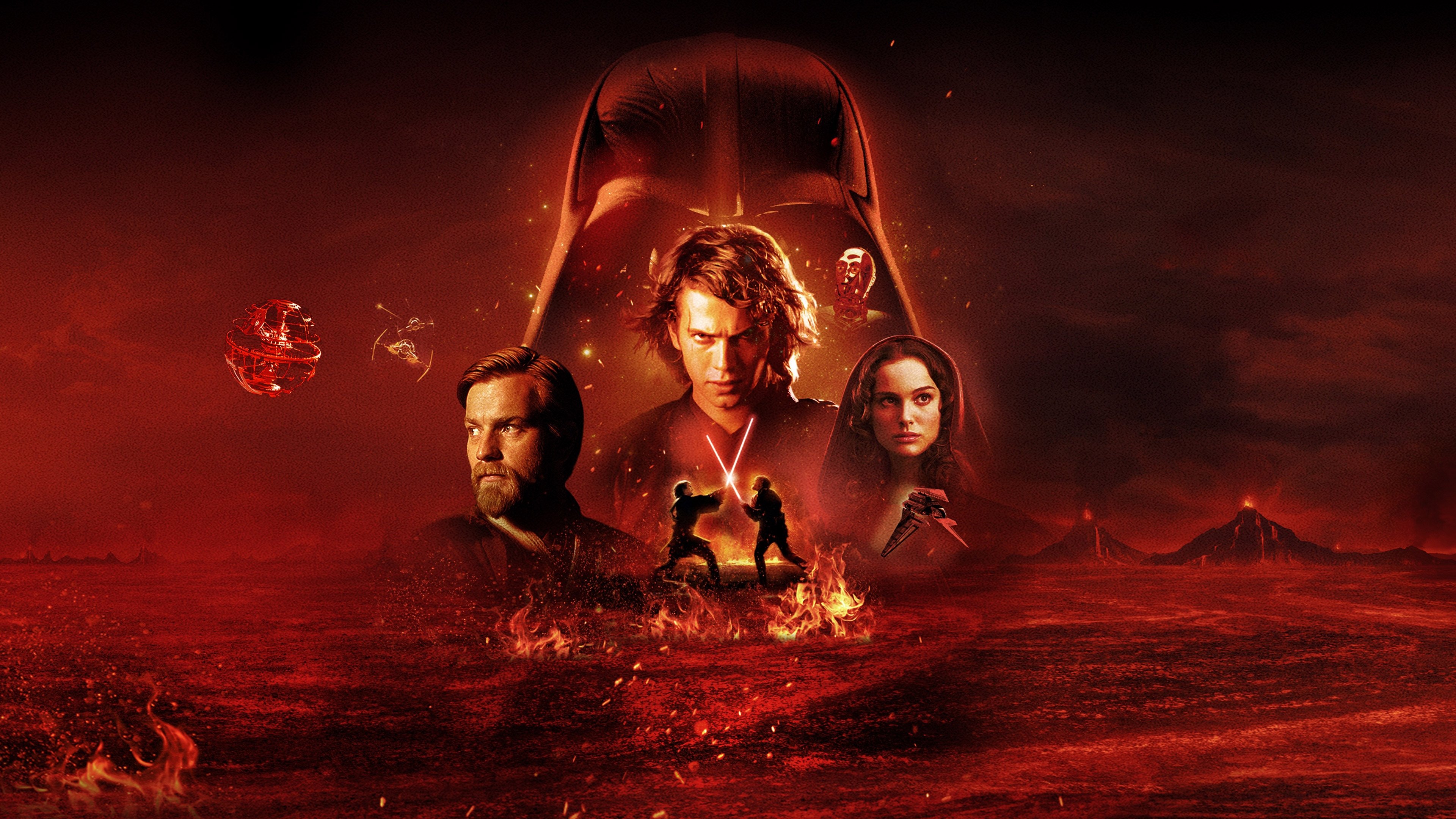Watch Star Wars: Episode III - Revenge of the Sith (2005) Movie

The evil Darth Sidious enacts his final plan for unlimited power -- and the heroic Jedi Anakin Skywalker must choose a side.

The saga is complete. - showdown
## The Tragedy of Anakin Skywalker: A Descent Forged in Fear, Not Fury
George Lucas's *Star Wars: Episode III - Revenge of the Sith* isn't just a space opera; it's a Shakespearean tragedy played out against the backdrop of a galaxy at war. While lightsabers clash and the fate of the Republic hangs in the balance, the film's true power lies in its exploration of Anakin Skywalker's fall from grace, a descent driven less by outright malice and more by crippling fear and manipulated insecurities.
The film opens with the Clone Wars reaching their climax. Anakin, a Jedi Knight renowned for his prowess and bravery, is already teetering on the precipice. He’s plagued by premonitions of Padmé Amidala's death, a fear amplified by his desperate attachment to her – an attachment strictly forbidden by the Jedi Order. This forbidden love, combined with his inherent distrust of the Jedi Council, creates fertile ground for Palpatine's insidious manipulation.
Palpatine, the charismatic Chancellor who is secretly Darth Sidious, the orchestrator of the Clone Wars, plays on Anakin's vulnerabilities with masterful precision. He subtly undermines the Jedi Council's authority in Anakin's eyes, suggesting they are holding him back and stifling his potential. He whispers promises of power, the power to save Padmé from her impending demise. This promise, delivered in hushed tones and veiled in cryptic pronouncements about the "dark side," is the hook that reels Anakin in.
The Council's decision to deny Anakin the rank of Jedi Master while simultaneously assigning him to spy on Palpatine further fuels his resentment. He feels betrayed, undervalued, and misunderstood. He desperately craves recognition and the power to protect those he loves, yet the very institution he swore to uphold seems determined to deny him both.
The turning point arrives when Palpatine reveals himself as Darth Sidious. In a desperate attempt to save Padmé, Anakin reports this revelation to Mace Windu. Windu confronts Palpatine, intending to end his reign of terror. However, Anakin, fearing for Palpatine's life because he believes he holds the key to saving Padmé, intervenes. He disarms Windu, allowing Palpatine to kill him. This single act, born of fear and desperation, seals Anakin's fate.
Having crossed the Rubicon, Anakin pledges himself to Darth Sidious and becomes Darth Vader. He embraces the dark side, believing it is the only way to achieve his goals. He leads the massacre at the Jedi Temple, slaughtering younglings in a chilling scene that solidifies his descent into darkness. This isn't an act of pure evil, but rather a twisted manifestation of his desperation to protect Padmé, believing he must eliminate any potential threat to her life, however misguided that belief may be.
The final confrontation on Mustafar, against his former master and friend Obi-Wan Kenobi, is a heartbreaking climax. Anakin, consumed by the dark side and blinded by rage, accuses Obi-Wan of turning Padmé against him. The duel is a brutal and visually stunning display of raw emotion and incredible skill. When Obi-Wan defeats Anakin, leaving him dismembered and burning on the volcanic planet, he laments, "You were the Chosen One! It was said that you would destroy the Sith, not join them! Bring balance to the Force, not leave it in darkness!"
Padmé, heartbroken by Anakin's transformation, dies shortly after giving birth to Luke and Leia. Her death, arguably hastened by her despair, becomes the ultimate confirmation of Anakin's failure. He sought to save her life, and in doing so, he destroyed everything he held dear.
*Revenge of the Sith* isn't simply about good versus evil. It’s a cautionary tale about the dangers of fear, attachment, and the seductive allure of power. Anakin Skywalker's tragedy serves as a stark reminder that even the most promising individuals can be led astray by their own insecurities and the machinations of those who seek to exploit them. He is a testament to the corrosive nature of fear and the devastating consequences of choices made in desperation. It is this tragic complexity that makes *Revenge of the Sith* a powerful and enduring piece of cinematic storytelling.

إرسال تعليق